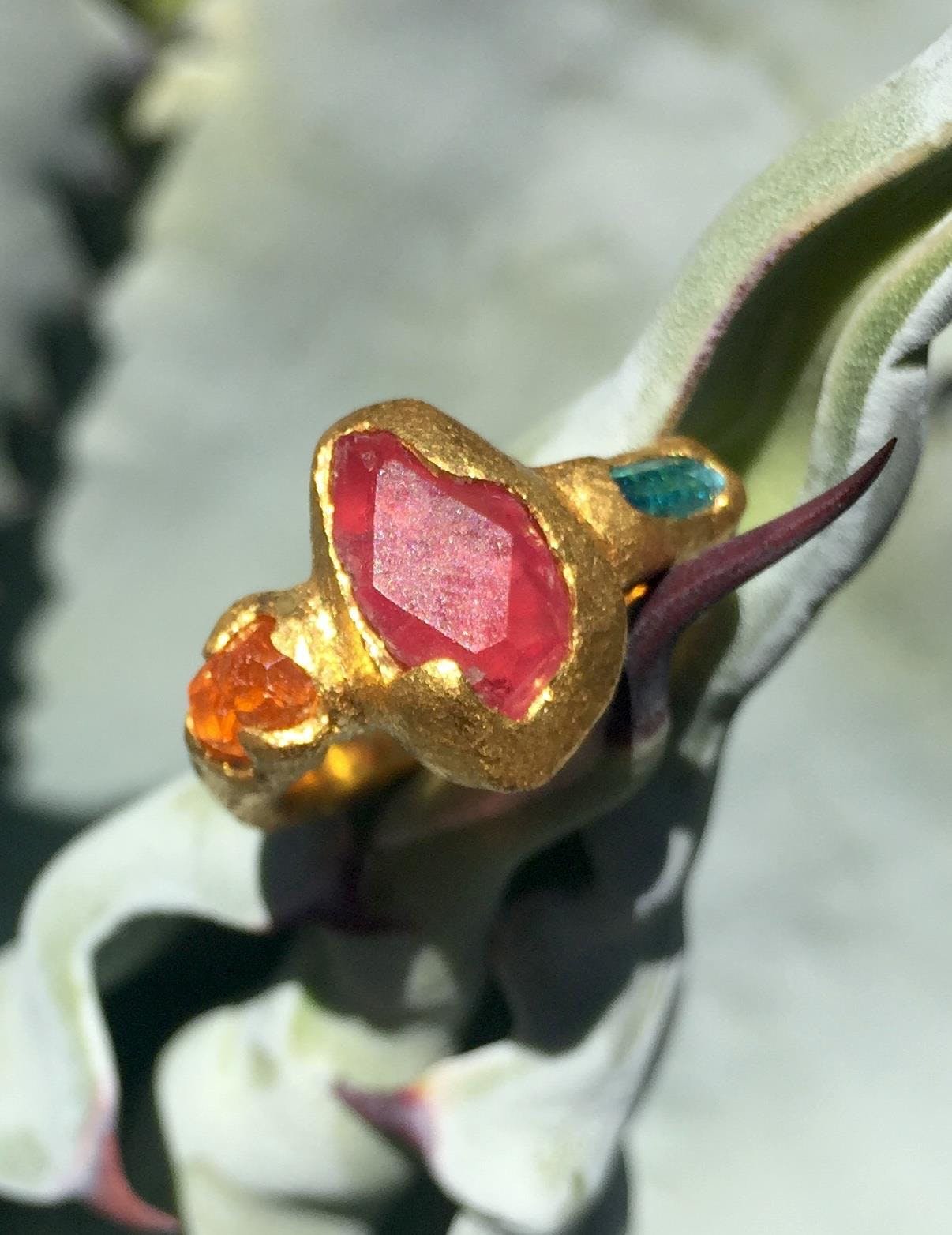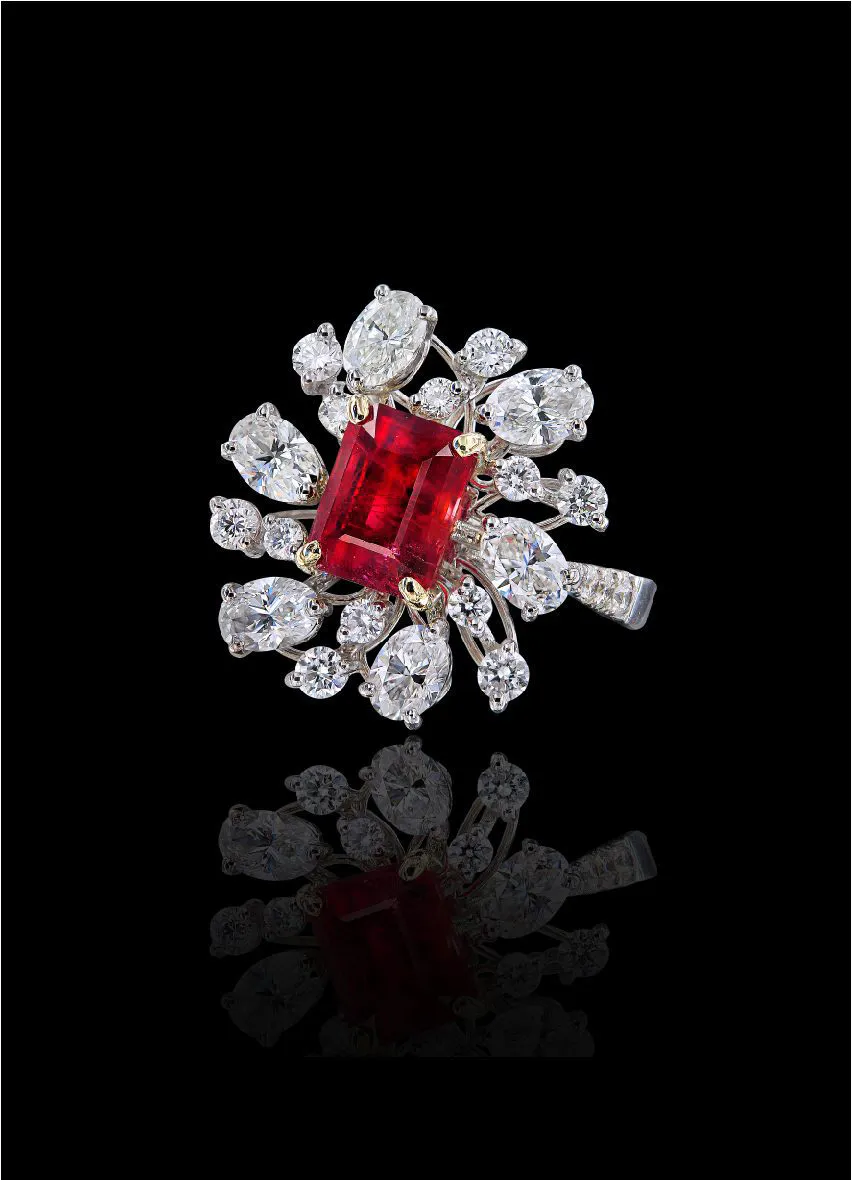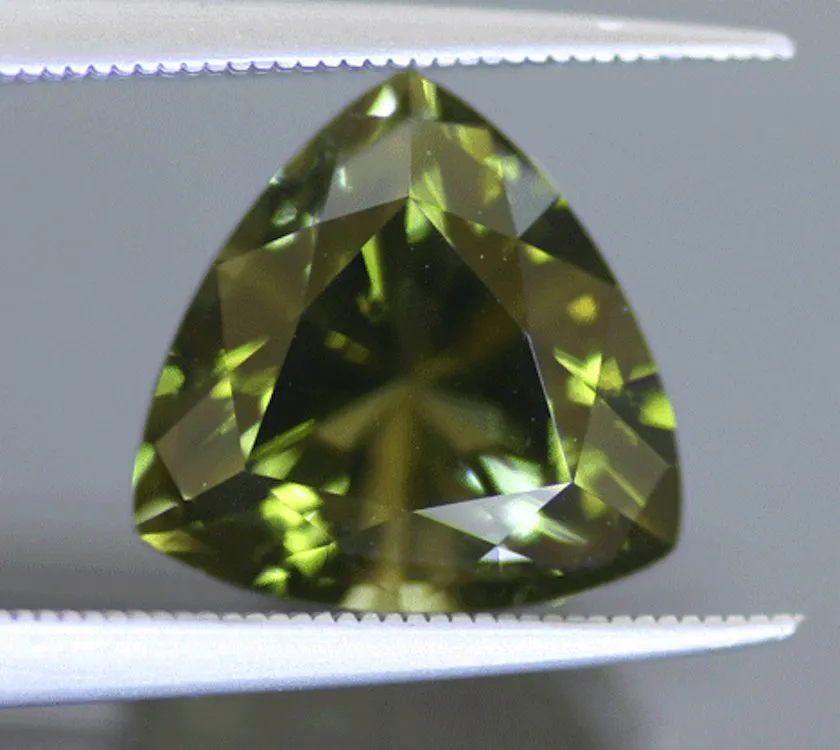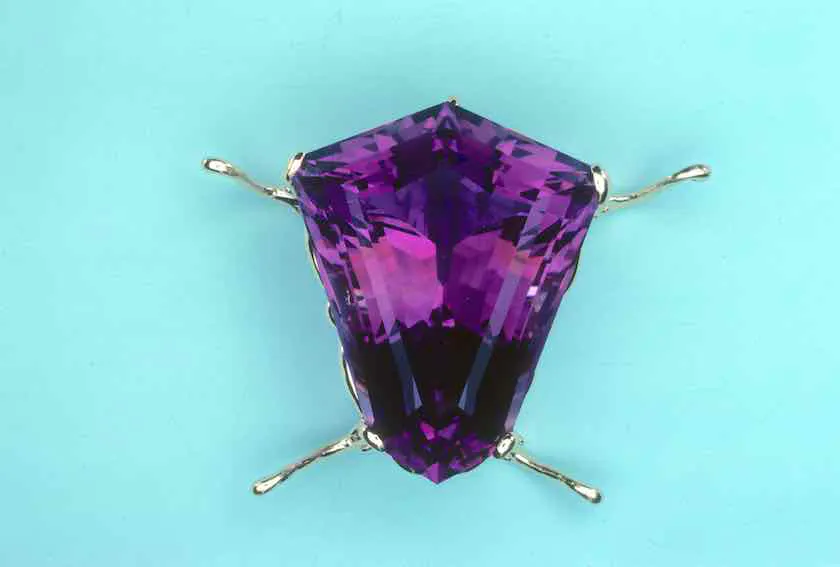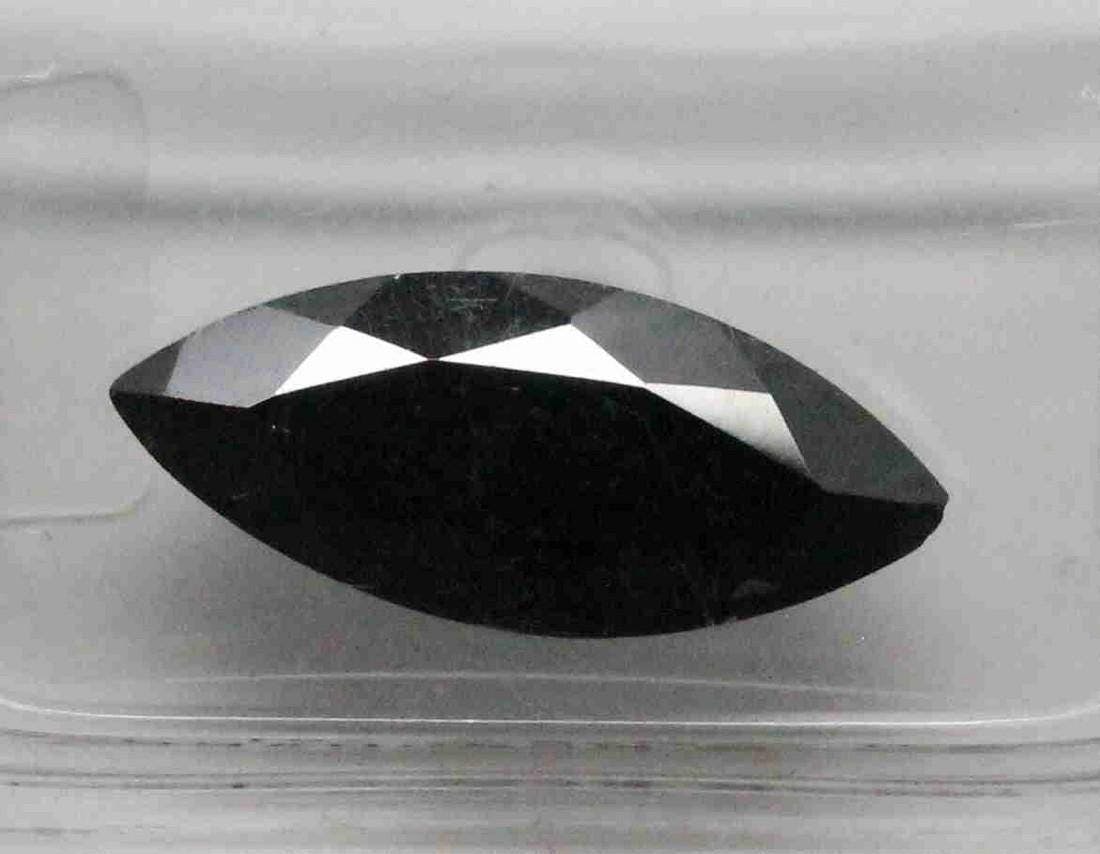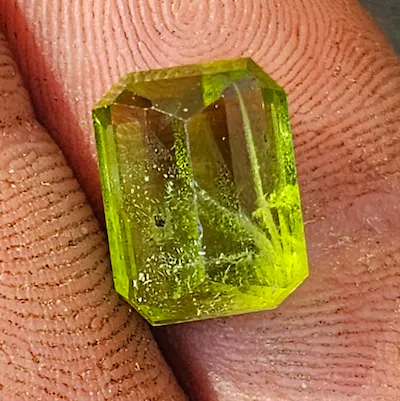Information about Diamonds, Information about Ruby, News
9 Red Gemstones for Stunning Rings
Are you on the hunt for the perfect red gemstone to adorn a stunning ring? Your search ends here! In this comprehensive guide, we will introduce you to 9 distinct red gemstones that are bound to steal your heart. From the timeless allure of rubies to the unique charm of red spinel, rubellite tourmaline, and even red diamonds, our exploration covers a wide spectrum to cater to every taste.
This article not only showcases the diverse array of gemstones but also delves into the crucial factors of color vibrancy, clarity, and durability, essential considerations when evaluating these precious stones. Whether you’re seeking an elegant daily accessory or a show-stopping piece for a special occasion, rest assured, we have your needs covered.
At Melogems, we specialize in offering a curated selection of red gemstone rings that combine exquisite craftsmanship with the finest quality gemstones. Dive into this world of red gemstones with us and prepare to be enchanted by their beauty, sophistication, and timeless appeal.
Color, Clarity, and Durability Factors
When it comes to selecting a red gemstone for your ring or other jewelry piece, there are few factors to consider. The color, clarity, and durability of the gemstone are all important aspects that can greatly affect its appearance and longevity. In this article, we will explore various red gemstones and delve into the characteristics that make each one unique. Whether you prefer the timeless beauty of a ruby or the vibrant allure of a red spinel, understanding these factors will help you make an informed decision.
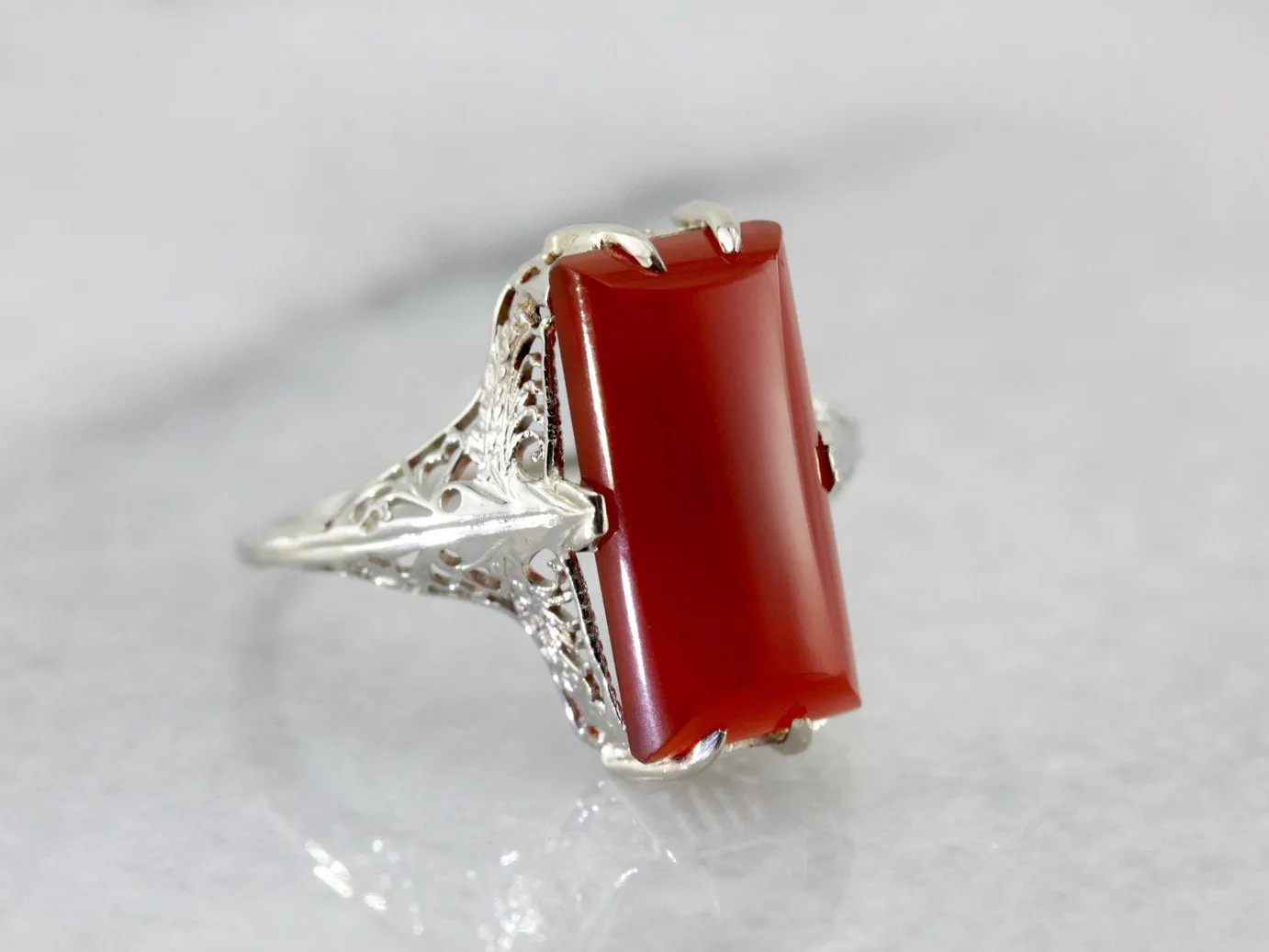
Importance of Color in Red Gemstones
The color of a red gemstone is perhaps the most significant factor to consider. Red gemstones can come in various hues, ranging from deep crimson to vibrant scarlet. The intensity and purity of the red color greatly impact the gemstone’s overall appeal. When evaluating the color of a red gemstone, it is important to consider factors such as saturation, tone, and hue.
Saturation refers to the strength or intensity of the red color. A highly saturated red gemstone will exhibit a bold and vivid color, while a lower saturation may result in a duller appearance. Tone, on the other hand, refers to the lightness or darkness of the gemstone. A medium tone is generally preferred as it allows the red color to truly shine. Lastly, the hue refers to the balance of red with undertones of other colors. While pure red is the most desired hue, slight variations can create unique and interesting visual effects.
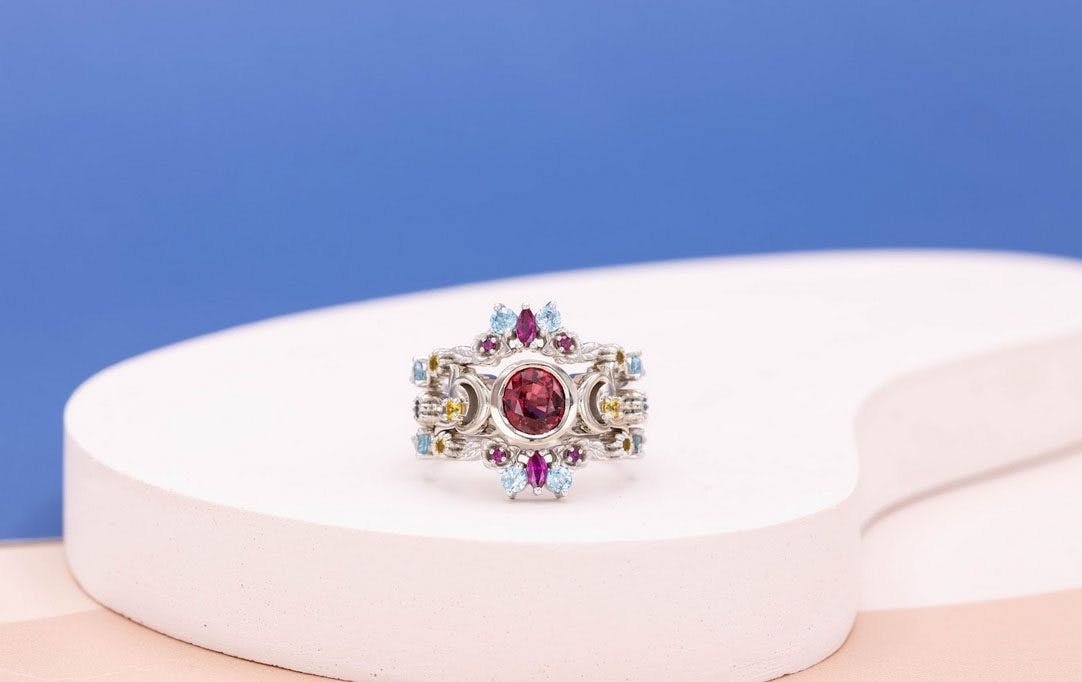
Evaluating Clarity in Red Gemstones
Clarity is another crucial factor to consider when selecting a red gemstone. Clarity refers to the presence of any internal or external flaws, known as inclusions, within the gemstone. These inclusions can range from tiny natural imperfections to more visible flaws that can greatly impact the gemstone’s beauty. For red gemstones, it is important to strike a balance between clarity and color.
Inclusions in red gemstones can often be masked by the vibrant red color, making them less visually apparent. However, gemstones with high clarity are generally more valuable and desired. When evaluating the clarity of a red gemstone, consider the type, size, and location of the inclusions. Gemstones with minimal inclusions and those that have them positioned away from the visible areas are considered to have higher clarity and are often more sought after.
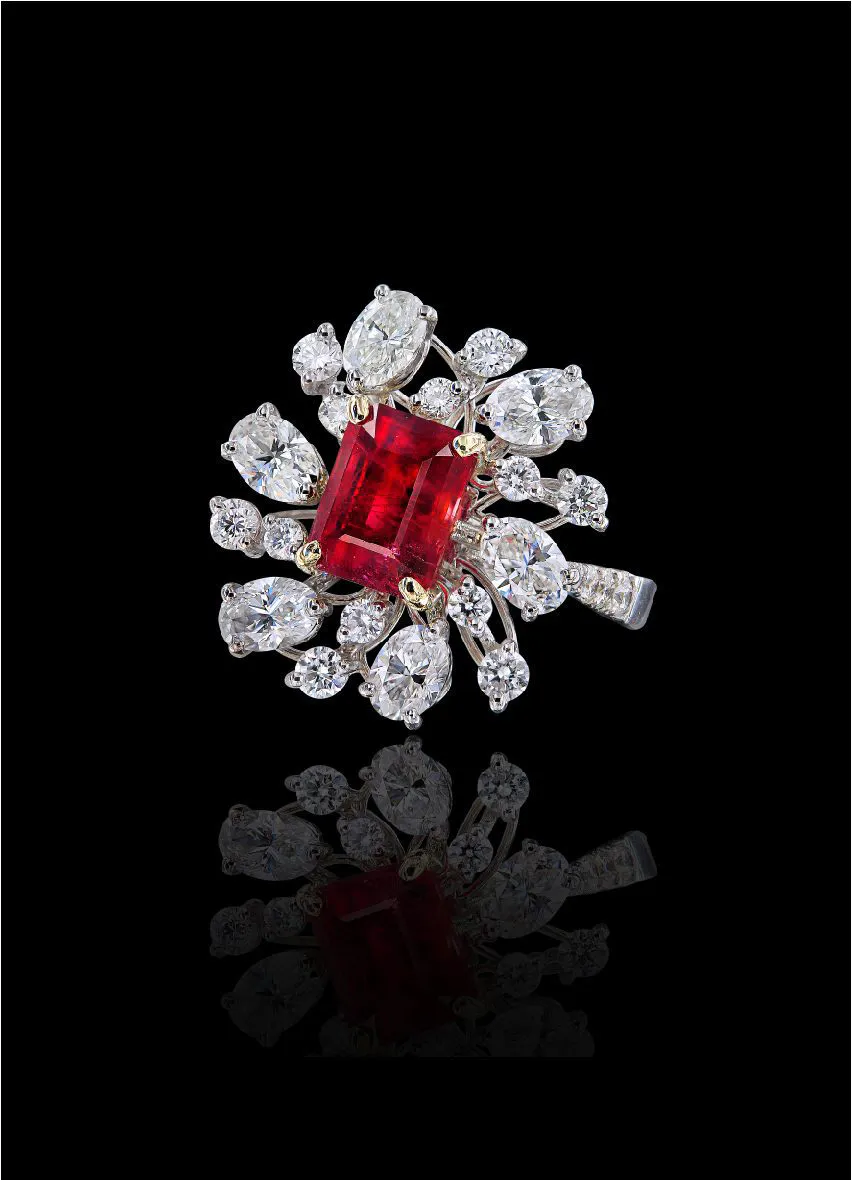
Considerations for Durability in Red Gemstones
Durability is a critical factor to consider, especially if you plan to wear your red gemstone regularly or use it in an engagement ring or other pieces of jewelry that will endure daily wear. The durability of a gemstone is determined by its hardness and resistance to damage or scratching.
Red gemstones vary in terms of their durability, with some being more suitable for everyday wear and others better suited for occasional wear or more protected settings. Understanding the hardness of a gemstone can help you determine its suitability for your desired purpose.
Now that we have explored the basic factors to consider when selecting a red gemstone, let’s delve into the characteristics of some popular red gemstones and explore their unique qualities.
Ruby
Ruby, known as the “King of Gemstones,” is undoubtedly the most famous red gemstone. It is treasured for its rich red hue, which symbolizes love, passion, and vitality. The vibrant crimson color of ruby is truly captivating and has been coveted for centuries.
Characterized by its excellent hardness and durability, ruby is a gemstone that can withstand everyday wear. With a hardness of 9 on the Mohs scale, ruby is second only to diamond in terms of hardness. This makes it an ideal gemstone for engagement rings, where durability is crucial.
Ruby is often cut into popular shapes, such as oval, round, and cushion, to maximize its brilliance and showcase its stunning color. These cuts allow the gemstone to reflect light beautifully and create a mesmerizing sparkle.
Throughout history, ruby has been used to create many famous jewelry pieces. One notable example is the “Graff Ruby” ring, which features a rare 8.62-carat Burmese ruby surrounded by diamonds. This extraordinary piece showcases the beauty and elegance of ruby and is a testament to its timeless appeal.
Red Spinel
Red spinel is a stunning gemstone that often rivals the beauty of ruby. It is known for its vibrant red color and excellent brilliance. While spinel occurs in a variety of colors, the red spinel, in particular, is highly sought after for its intense hue and fiery sparkle.
One of the key features of red spinel is its exceptional clarity. It is often found to be virtually free of inclusions, making it highly desirable for gemstone enthusiasts and collectors. The lack of inclusions allows red spinel to exhibit a remarkable transparency and brilliance, further enhancing its allure.
When it comes to complementary gemstones for red spinel, diamonds make an excellent choice. The contrast between the fiery red spinel and the brilliance of diamonds creates a striking visual impact. Red spinel is often used in engagement rings and other jewelry pieces where its vibrant color can take center stage.
Famous red spinel rings include the “Black Prince’s Ruby” and the “Timur Ruby.” These historic gemstones have adorned the crowns and jewelry of royalty and are a testament to the enduring beauty and allure of red spinel.
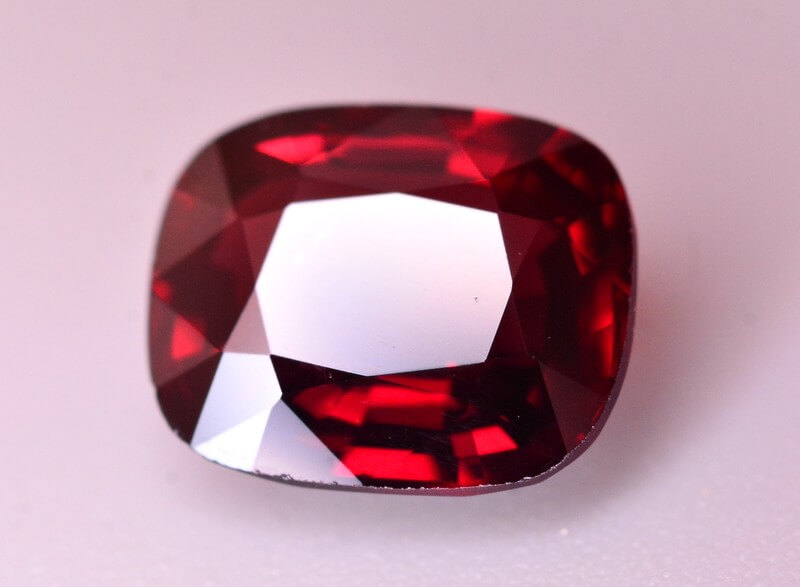
Rubellite Tourmaline
Rubellite tourmaline is a captivating gemstone that displays a range of pink to red hues. It is cherished for its vibrant color and exceptional clarity. The name “rubellite” comes from the Latin word “rubellus,” meaning reddish. The gemstone’s vivid red color is often reminiscent of a ripe raspberry, making it a unique and eye-catching choice.
One of the defining properties of rubellite tourmaline is its pleochroism. Pleochroism refers to the ability of a gemstone to display different colors when viewed from different angles. Rubellite tourmaline exhibits a remarkable color shift, appearing pinkish-red under daylight and transitioning to a more purplish-red under incandescent light.
When it comes to settings for rubellite tourmaline, designs that allow ample light to enter the gemstone are preferred to enhance its brilliance. Pear or oval-shaped cuts are popular choices as they show off the gemstone’s color and pleochroism beautifully. Rubellite tourmaline is often used in statement jewelry pieces, adding a bold and vibrant touch to any ensemble.
Notable rubellite tourmaline jewelry includes the “Mogok Hope” necklace, which features a striking 351-carat rubellite tourmaline pendant surrounded by diamonds. This exceptional piece showcases the unique properties of rubellite tourmaline and highlights its beauty in a truly magnificent way.
Red Diamond
Red diamond is one of the rarest and most valuable gemstones in the world. Known for its mesmerizing red hue, red diamond is a gemstone that truly stands out. The rich, deep red color of red diamond is caused by rare internal graining, which scatters light and gives it its unique appearance.
The most unique quality of red diamond is its natural color. Unlike other colored diamonds that acquire their hues from trace elements, the red diamond gets its color due to structural defects in its lattice. This makes red diamond exceptionally rare, with only a handful of gem-quality red diamonds known to exist.
When it comes to grading red diamonds, the intensity and purity of the red color play a crucial role. The Gemological Institute of America (GIA) grades red diamonds on a scale ranging from “Faint” to “Fancy Deep.” The more intense and vivid the red color, the higher the value of the red diamond.
Famous red diamond engagement rings include the “Hancock Red Diamond” and the “Rob Red Diamond.” These extraordinary gemstones have captivated the world with their rarity and beauty, making them the ultimate symbol of love and exclusivity.
Garnet
Garnet is a diverse group of gemstones that comes in a range of colors, including various shades of red. While not as famous as ruby, garnet offers an affordable and attractive alternative for those looking for a red gemstone.
There are different types of garnet, each with its unique characteristics. The most commonly known red garnet is the almandine garnet, known for its deep red hue with a purplish undertone. Pyrope garnet, on the other hand, showcases a brilliant red color similar to that of ruby. Rhodolite garnet, a mixture of almandine and pyrope, exhibits a pinkish-red to purplish-red color that is highly sought after.
Garnet’s affordability and availability in various colors and sizes make it an excellent alternative to ruby for those on a budget. Its durability and hardness, ranging from 6.5 to 7.5 on the Mohs scale, also make it suitable for everyday wear.
Whether set in a classic solitaire design or combined with other gemstones, garnet is a versatile gemstone that adds a touch of elegance to any jewelry piece. Its compelling beauty and affordability make it a popular choice among gemstone enthusiasts.
Jasper
Jasper is a unique gemstone known for its earthy tones and beautiful patterns. While it is available in various colors, red jasper is particularly captivating and adds a touch of warmth and vibrancy to any jewelry piece.
Characterized by its opaque appearance, red jasper displays a range of red hues, from deep brick red to softer shades of reddish-brown. The patterns and banding found in red jasper are a result of the inclusion of other minerals during its formation, giving each piece a unique and distinctive look.
Red jasper is commonly used in statement jewelry pieces due to its bold and eye-catching appearance. It is often cut into large cabochons or shaped into beads for use in necklaces, bracelets, and earrings. Red jasper is favored by those who appreciate the natural beauty of gemstones and seek to make a statement with their jewelry.
Whether worn as a standalone piece or combined with other gemstones, red jasper is a gemstone that adds a touch of earthy elegance to any jewelry collection.
Topaz
Topaz is a gemstone that occurs in a wide range of colors, including a stunning deep red variety known as red topaz. Red topaz, also known as precious topaz, is highly sought after for its fiery red color and excellent transparency.
Compared to other colors of topaz, red topaz is relatively rare and therefore holds a special allure. Its rich and vibrant red color is often reminiscent of a beautiful sunset, making it an ideal choice for those who seek to make a statement with their jewelry.
Red topaz is believed to symbolize passion, energy, and love. It is often associated with strength and vitality, making it a meaningful gemstone for a variety of occasions. Red topaz is also said to inspire creativity and stimulate the mind, making it a popular choice among artists and creative individuals.
When it comes to jewelry design ideas for red topaz, a simple solitaire design can highlight the gemstone’s intense color and transparency beautifully. Red topaz is also often combined with diamonds or other gemstones to create stunning and unique pieces. The versatility of red topaz allows for a wide range of design possibilities, from classic to contemporary.
Red Beryl
Red beryl, also known as bixbite or red emerald, is an exceedingly rare and precious gemstone. It is treasured for its vibrant red color, which rivals the finest rubies. Red beryl is one of the rarest gemstones in the world, with only a handful of known gem-quality specimens.
The allure of red beryl lies in its mesmerizing color. It exhibits a rich, intense red hue with a hint of pink, radiating a fiery brilliance. The gemstone’s captivating color, combined with its exceptional transparency, makes it highly sought after by collectors and gemstone enthusiasts.
The geological origins of red beryl are equally fascinating. It is formed under extreme geological conditions, often in association with volcanic activity. The rarity of the gemstone’s occurrence, coupled with its exceptional beauty, contributes to its allure and value.
Celebrity red beryl jewelry is scarce due to the gemstone’s rarity, but it has graced the collections of a few fortunate individuals. The mesmerizing beauty and exclusivity of red beryl have cemented its position as one of the most coveted gemstones in the world.
Zircon
Zircon, often mistaken for cubic zirconia, is a unique gemstone that comes in a variety of colors, including red. Unlike cubic zirconia, which is a synthetic material, zircon is a natural gemstone with its remarkable properties.
Red zircon displays a range of warm red hues, from deep crimson to soft rose. Its color is often more subdued compared to other red gemstones, but its brilliance and luster make it an attractive choice for jewelry pieces.
One of the key differences between zircon and cubic zirconia lies in their chemical composition. Zircon is a naturally occurring gemstone composed of zirconium silicate, while cubic zirconia is a synthetic material made to resemble a diamond.
Red zircon is often found in antique and vintage jewelry, where its unique charm and vintage aesthetic are highly valued. It adds a touch of nostalgia and history to any piece, making it a popular choice among those who appreciate vintage and antique designs.
Red gemstones offer a wide range of options for those seeking a vibrant and captivating gemstone for their jewelry collection. From the timeless elegance of ruby to the rare allure of red beryl, there is a red gemstone to suit every style and preference. Whether you prefer a classic solitaire setting or a bold statement piece, these red gemstones are sure to add a touch of beauty and brilliance to any jewelry creation.
